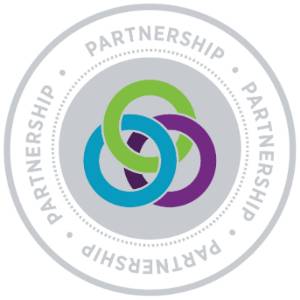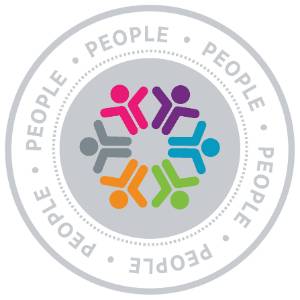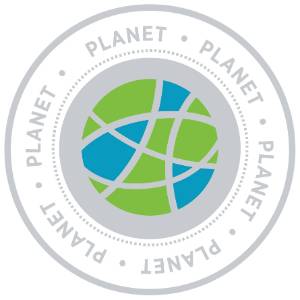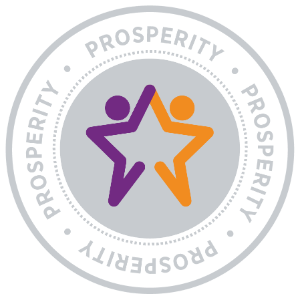
This past November, Saskatchewan Polytechnic signed on to the SDG Accord, a global initiative to further the United Nation (UN)’s Sustainable Development Goals, or SDGs.
Increasingly, the work Sask Polytech advances as part of our institutional strategy, Leading the Rise, supports the goals outlined by the United Nations. Continuing our commitment to the SDGs will ensure that all learners have the opportunity to succeed and develop the knowledge, skills, attitudes and values that will allow them to contribute to a society that is at the heart of the global agenda.
Sask Polytech is committed to building a more sustainable future. Sustainability is a key value of the institution—along with respect, integrity and excellence—and goes beyond the environmental aspect that many of us think about when we hear the word.
Sask Polytech’s SDG commitments will continue to grow as we work to embed sustainability into our daily work and learning. The following key areas of the organization are leading the way.
Applied Research
Sask Polytech’s Office of Applied Research and Innovation (OARI) has long recognized the power of a collaborative network in solving real world problems. OARI addresses the needs of industry, government and community while aligning its projects with the SDGs. OARI works to identify the different synergies among the sustainable development goals that can align with current and future research and development. As a result, Sask Polytech research that is linked to SDGs can create connections to potential partners and other researchers who are working on complementary projects locally and internationally.
Success in research that is linked to SDGs also aligns with Sask Polytech’s stated goals of supporting communities and creating equitable opportunities. The SDGs are important in guiding future research and development at Sask Polytech towards addressing the most urgent needs of industry, government and community.
School of Mining, Energy and Manufacturing and School of Natural Resources and Built Environment
Sustainable development is at the core of the academic programming and applied research operations of the schools of Mining, Energy and Manufacturing (MEM) and Natural Resources and Built Environment (NRBE). The UN’s SDG #9—focused on building resilient infrastructure, promoting inclusive and sustainable industrialization and fostering innovation—articulates the key goals of the operations in MEM and NRBE. Sustainable industrialization in Saskatchewan and beyond is fostered through programs in NRBE such as Civil Engineering Technology, Water Resources Technology, Environmental Engineering Technology, Integrated Resource Management and BioScience Technology. The school of NRBE recently launched the Agriculture and Food Production program, based on practices that embody the future of farming, such as sustainability, environmental stewardship, food security, traceability, Indigenous resource rights, and water management—all significant SDG foci.
MEM is taking steps on the Moose Jaw campus to support not only a greater focus on green energy in existing academic programming, but also to work with industry partners on much-needed applied research. Expansion of facilities and programming at the Hannin Creek Education and Applied Research Centre near Candle Lake will feature an Indigenous outdoor learning centre to help fulfill Sask Polytech’s commitment to reconciliation and to build links to traditional Indigenous land-based learning—supporting SDG #10, reduced inequality
The Biomaterials Testing and Prototyping centre in Regina focuses on using materials such as crop straw and agricultural plastic waste to develop sustainable products, including a lightweight aggregate mixture for the construction industry. Benefits of the new aggregate are not only cost savings to the industry, but also carbon emission reduction and diversion of agricultural plastic waste from the landfill. The construction aggregate project is just one example of how work in the School of MEM’s applied research centres also promotes the adoption of clean and environmentally sound technologies and industrial processes, as described in SDG #9.
Advancement and International
Sask Polytech recognizes that its graduates will live and engage in a globally connected world. The development of global competencies and an understanding of our shared humanity helps prepare our graduates for this eventuality. The UN SDGs offer an ideal platform to support the development of these competencies, but more importantly, to understand that collective action is required for a shared humanity.
With funding support from the Government of Canada, Sask Polytech is actively pursuing SDG-related projects with international reach. In November 2021, Sask Polytech began work with Weru Technical Vocational College, Kenya to support the development of applied teaching skills in support of SDG #4, which focuses on inclusive and equitable education. Also in November 2021, Sask Polytech partnered with Parkland College to support the international mobility for outbound Indigenous and low-income students. Supporting several of the goals including SDG #17 which focuses on partnerships, project exchanges will occur in countries where Sask Polytech has partnership Memorandums of Understanding, including China, India, Mexico, Uganda, Vietnam, Mexico, Ukraine.
In 2015, the UN brought together more than 150 world leaders to collaborate on the development of 17 sustainable development goals, 169 associated targets and 230 agreed-upon global indicators to be achieved by the year 2030. The goals, grouped in five thematic areas—people, prosperity, planet, peace and partnership—are an ambitious global effort. Although progress to meet them is being made, action to meet them by 2030 is not yet advancing at the speed or scale required.
The SDG Accord calls upon the world’s colleges, polytechnics and universities to embed the SDGs into education, research, leadership, operations, administration, and engagement activities, and to align all major efforts with the SDGs, targets and indicators. Led by the Alliance for Sustainability Leadership in Education (EAUC) and supported by Colleges and Institutes Canada (CICan), the accord is the post-secondary sector’s collective response to advance the critical role that education has for reducing inequality, ending poverty and hunger, improving health and education, protecting the planet, and enabling innovation and meaningful work for prosperity.
For more information about Sask Polytech’s alignment with the SDG Accord, including news about current projects, please visit saskpolytech.ca/sustainable-development-goals.
Saskatchewan Polytechnic is signatory to the SDG Accord. Sustainable Development Goal alignment is one of the ways Sask Polytech is leading the rise of polytechnic education.





Published Feburary 2022.

